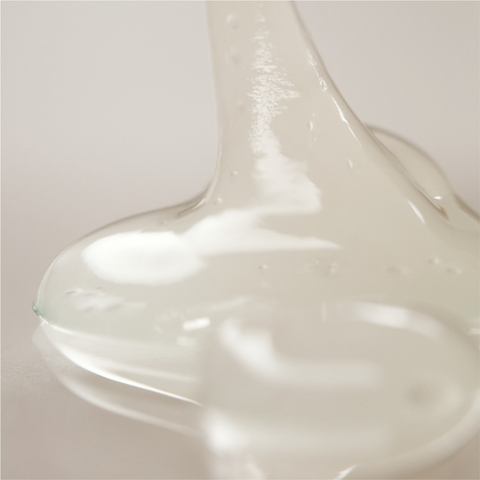If you deal with uncomfortable premenstrual syndrome (PMS) symptoms every month, you’re not alone. Between 30 to 40% of people who have periods report experiencing PMS symptoms at some point in their lives.
PMS typically shows up in the week before your period and can linger until the start of your next cycle. Symptoms like irritability, cramping, fatigue, and sleep troubles can all impact your ability to function normally. Digestive issues are also a common PMS complaint and can include bloating, excess gas, and diarrhea.
Since Magnesium is known to improve digestion, you might be wondering if it could be the answer to your period-related symptoms. So, does Magnesium help with PMS? If you regularly experience mild to moderate PMS, Magnesium may help make “that time of the month” a bit easier.
Below, we outline the benefits of Magnesium for PMS and how to use Magnesium for menstrual pain.
Benefits of Magnesium for PMS
Supplementing with Magnesium may help limit PMS symptoms and make your period a little easier to handle. Here’s how increasing your Magnesium intake can help reduce menstrual cramps, period pain, and other hormonal imbalance symptoms.
Reduces Period Cramps
Magnesium is essential for muscle contraction and relaxation. During menstruation, period cramps occur due to muscle spasms in the uterus. Magnesium may help reduce the intensity and frequency of these painful contractions, aka cramps.
Additionally, Magnesium lowers prostaglandin levels. Prostaglandins are hormone-like substances that trigger uterine contractions. By reducing levels of this hormone, Magnesium intake can further ease cramping.
Magnesium also has anti-inflammatory properties that can help ease menstrual pain. It can help reduce stress levels, which can worsen cramps.
How does Magnesium level out stress? It does this in a few ways. Namely by regulating your hypothalamic-pituitary-adrenal (HPA) axis. The HPA is your body’s central stress response system that governs hormone release, namely cortisol.
Magnesium is also important for balancing neurotransmitter levels, including gamma-aminobutyric acid (GABA), the neurotransmitter responsible for calming the nervous system.
Balanced GABA = fewer feelings of stress and anxiety + more calm in your life.
Eases Mood Swings
Your mood can shift before and during your period as your hormone levels change. Magnesium can help support balanced hormone levels and limit the impact of period-related hormone dips that mess with your emotional well-being.
Research also shows that Magnesium can balance cortisol levels (also known as the stress hormone). Getting enough Magnesium makes it easier to cope with feelings of stress and anxiety.
In addition to leveling cortisol levels, Magnesium regulates serotonin (often dubbed the “feel good” hormone), dopamine, and GABA, which is a crucial component of nervous system homeostasis and also important for balancing mood and overall mental health.
The essential mineral also has proven relaxation benefits, helping to calm your nervous system and promote chill vibes.
Reduces Bloating
Bloating happens for many reasons, but during your period, it often occurs due to increased water retention. As your hormones shift, so does your body’s fluid balance, making you more likely to retain water.
PMS can also affect digestion, causing discomfort through bloating and excess gas. Magnesium helps bloating by promoting healthy gut motility and fluid balance.
One study found that combining Magnesium and vitamin B6 may help reduce PMS symptoms, including bloating and abdominal discomfort.
Some types of magnesium are also well-known for getting the gut going by drawing water into the intestines, softening stool, and preventing slowed bowel movements. By helping to make you more regular, Magnesium can make you less likely to experience painful PMS-related bloating due to constipation. For this reason, Magnesium is one of the best natural remedies for bloating.
Additionally, Magnesium is a muscle relaxant that helps chill out your digestive muscles, preventing GI tract cramping that can lead to bloating. Your body also needs Magnesium to properly digest foods and prevent excess gas that can cause your belly to expand.
Improves Sleep Quality
PMS symptoms like bloating and cramping can impact your ability to get adequate shut-eye. Shifting hormones can also make insomnia more likely.
Many people find that taking Magnesium before bed can help alleviate these issues. It helps kickstart melatonin production, the hormone that signals your brain it’s time to rest. It also relaxes your muscles and promotes a sense of calm, making it easier to fall asleep. And did you know stress can impact your Magnesium levels? Chronic stress can deplete your stores, and, in turn, a Magnesium deficiency can make it hard to cultivate calm. It’s a vicious cycle.
Supplementing with Magnesium can help reverse the effects of stress, including PMS-related anxiety, and make it easier to get the sleep you need.
Recommended Magnesium Dosage for PMS Relief
While the research on Magnesium for PMS is still ongoing, studies looking at how the supplement impacts PMS symptoms typically use a dose of between 200 to 400 milligrams (mg) per day.
It’s always a good idea to start with the lowest dose of supplementation and work your way up. Too high a Magnesium dose can overwhelm your digestive system, leading to digestive distress and diarrhea.
How to Incorporate Magnesium into Your Routine
You can take a Magnesium supplement around the time in your cycle when PMS symptoms start to show up. But it’s also possible to enjoy all the benefits of Magnesium supplementation, like better sleep, reduced anxiety, and improved digestion outside of your typical PMS window.
So, when is the best time to take Magnesium? If your main concern is sleep, the best time to take Magnesium is before bed. Otherwise, you can take Magnesium at any time.
For best results, opt for a bioavailable form of Magnesium such as Magnesium Citrate, Magnesium Gluconate, or Magnesium Threonate.
Make sure to talk with a healthcare professional if you’re new to taking Magnesium, especially if you’re currently taking any supplements or medications or have a health condition.
Embrace Monthly Balance with Magnesi-Om
If you’re looking for a way to limit PMS symptoms, consider adding a natural Magnesium powder supplement like Magnesi-Om® to your daily routine.
Magnesi-Om® contains 3 highly bioavailable types of Magnesium, including Magnesium Gluconate and Citrate, to restore cellular balance and promote calm, mood regulation, and digestive health.

The Bottom Line: Magnesium and PMS
PMS has a reputation for causing uncomfortable symptoms, but you don’t have to live with discomfort once every month. There are ways to limit period-related concerns like bloating, diarrhea, mood shifts, and sleep issues, including Magnesium supplementation. If you have low levels of Magnesium, increasing your Magnesium intake can help with a number of unwanted symptoms.
If you’re still struggling with PMS symptoms after trying a Magnesium supplement, speak with a healthcare professional. In some people, intense symptoms may be a sign of premenstrual dysphoric disorder (PMDD), a more severe form of PMS that can have a significant impact on your day-to-day living.
Sources
- Mount Sinai.Magnesium. https://www.mountsinai.org/health-library/supplement/magnesium
- PubMed.Magnesium in the gynecological practice: a literature review. https://pubmed.ncbi.nlm.nih.gov/28392498/
- PubMed Central.Evaluating the effect of magnesium and magnesium plus vitamin B6 supplement on the severity of premenstrual syndrome. https://www.ncbi.nlm.nih.gov/pmc/articles/PMC3208934/
- PubMed.The Association Between Serum Magnesium and Premenstrual Syndrome: a Systematic Review and Meta-Analysis of Observational Studies. https://pubmed.ncbi.nlm.nih.gov/30880352/
- PubMed.Impact of nutritional diet therapy on premenstrual syndrome. https://pubmed.ncbi.nlm.nih.gov/36819682/
- Science Direct.Effect of magnesium supplementation on women's health and well-being. https://www.sciencedirect.com/science/article/pii/S2352364621000079
- PubMed Central.What is the role of magnesium for skeletal muscle cramps? A Cochrane Review summary with commentary. https://www.ncbi.nlm.nih.gov/pmc/articles/PMC8020016/
- IJWHR.Effectiveness of Magnesium on Menstrual Symptoms Among Dysmenorrheal College Students: A Randomized Controlled Trial. https://www.ijwhr.net/pdf/pdf_IJWHR_624.pdf
- National Institutes of Health.Prior stress could worsen premenstrual symptoms, NIH study finds. https://www.nih.gov/news-events/news-releases/prior-stress-could-worsen-premenstrual-symptoms-nih-study-finds
- PubMed.Mood Swing during Menstruation: Confounding Factors and Drug Use. https://pubmed.ncbi.nlm.nih.gov/35950064/
- PubMed Central.Magnesium Status and Stress: The Vicious Circle Concept Revisited. https://www.ncbi.nlm.nih.gov/pmc/articles/PMC7761127/
- Mayo Clinic.Premenstrual dysphoric disorder: Different from PMS? https://www.mayoclinic.org/diseases-conditions/premenstrual-syndrome/expert-answers/pmdd/faq-20058315
- National Institutes of Health.Magnesium. https://ods.od.nih.gov/factsheets/Magnesium-HealthProfessional/
- PubMed Central.Sleep and Premenstrual Syndrome. https://www.ncbi.nlm.nih.gov/pmc/articles/PMC5323065/














